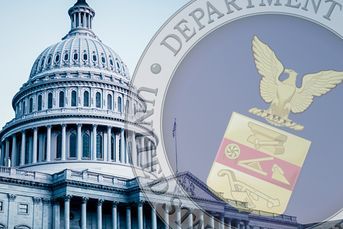Rushed tax reform would cause more harm than a delay
Perhaps if the time allotted is expanded, cooler heads will prevail.
Time is running out for Congress to propose and pass a well-thought-out tax reform bill that includes a tax cut, and that’s not a bad thing.
The House of Representatives is scheduled to adjourn for the year on Dec. 15 and the Senate on Dec. 18, though these dates could be pushed back by urgent or unfinished business. Both the Senate and House are scheduled to be in recess in the week of Nov. 20.
This doesn’t leave much time for them to develop, debate, wrangle over, amend and finally pass any tax bill. No wonder President Donald J. Trump and Senate Majority Leader Mitch McConnell seem to be backing away from the initial plan of passing the reform this year.
Mr. Trump told reporters last week that while he would like to see the tax bill passed this year, “We could have a long way to go, but that’s OK.”
Mr. McConnell noted that President Barack H. Obama signed the Affordable Care Act in March of the second year of his first term, and Dodd-Frank was signed in July of year two.
Better to delay
In fact, it would be better for financial advisers and their clients, and most likely the nation as a whole, if any tax bill was delayed to next year and thoroughly debated before being foisted on the economy. A rushed bill likely would be a messy bill for accountants and financial advisers to deal with, and an economically inefficient one as well.
(More: Trump reconsiders plan to eliminate deduction for state, local taxes)
There is little doubt the tax code needs to be simplified, and the corporate code made more competitive. The federal tax code is now more than 74,000 pages long, according to the Tax Foundation, having almost tripled from 26,300 pages in the last 30 years.
It violates all four principles on which Adam Smith said tax systems should be based, as enumerated in “The Wealth of Nations”: equality, convenience, clear and plain rules, and efficiency (revenues should be raised with the least economic distortion).
However, there is significant doubt that a deep tax cut is necessary, or even wise, given evidence that the economy is chugging along at a healthy pace. It even seems to have shrugged off the damage from Hurricanes Harvey and Maria.
Revenue considerations
A deep income tax cut, whether for individuals or corporations, without offsetting revenue considerations, passed in a rush toward the end of the year, would harm the economy in the long run by increasing the federal deficit. If Mr. Trump seeks to boost infrastructure spending to create jobs and improve economic efficiency, as he has promised, that would also increase the deficit. Increasing the deficit in either case would likely push up interest rates faster than the Federal Reserve wishes and could slow economic growth, negating the beneficial effects of any income tax cut.
A key reason passage of a tax reform bill this year is becoming less likely is that several Republican senators do not want to increase the federal deficit; they want a revenue-neutral bill.
(More: Trump nominates Senate aide for post overseeing DOL fiduciary rule)
But the delay is OK. The main reason to try to push the tax reform bill through this year appears to be to chalk up a legislative win for the president and the Republican-controlled Congress after the failure to repeal Obamacare. That’s not an appropriate reason to pass a rushed tax bill.
It’s time to get real and factor in the extent of the horse-trading that will need to take place among Republicans, and perhaps between the two parties, before any tax reform bill worth its salt can pass. Perhaps if the time allotted to developing legislation is expanded, even well into next year — despite its being an election year — cooler heads will prevail and a bill that meets Adam Smith’s criteria will emerge.
That would be a win for all.
Learn more about reprints and licensing for this article.








